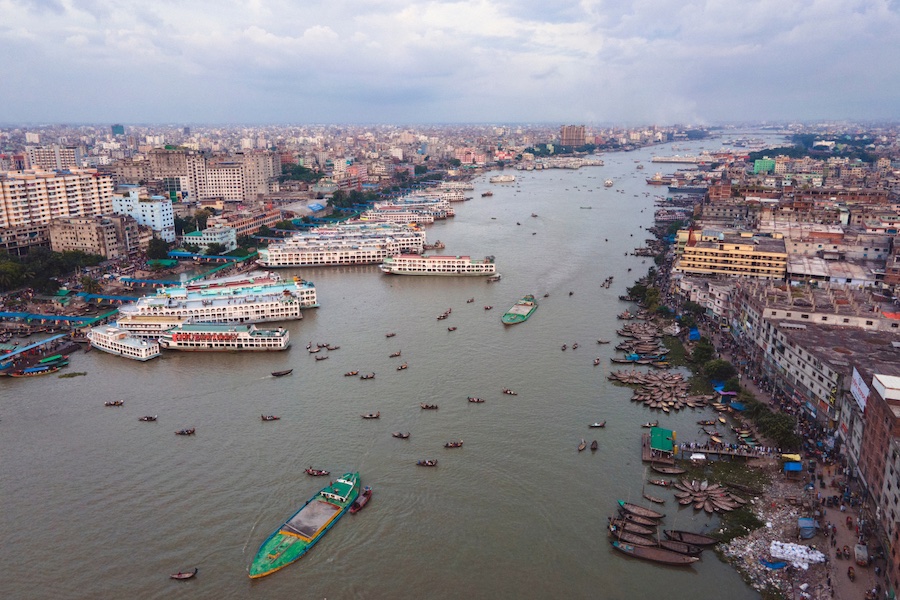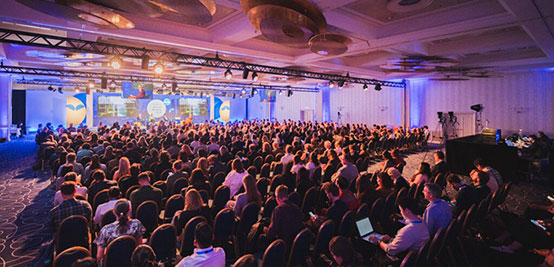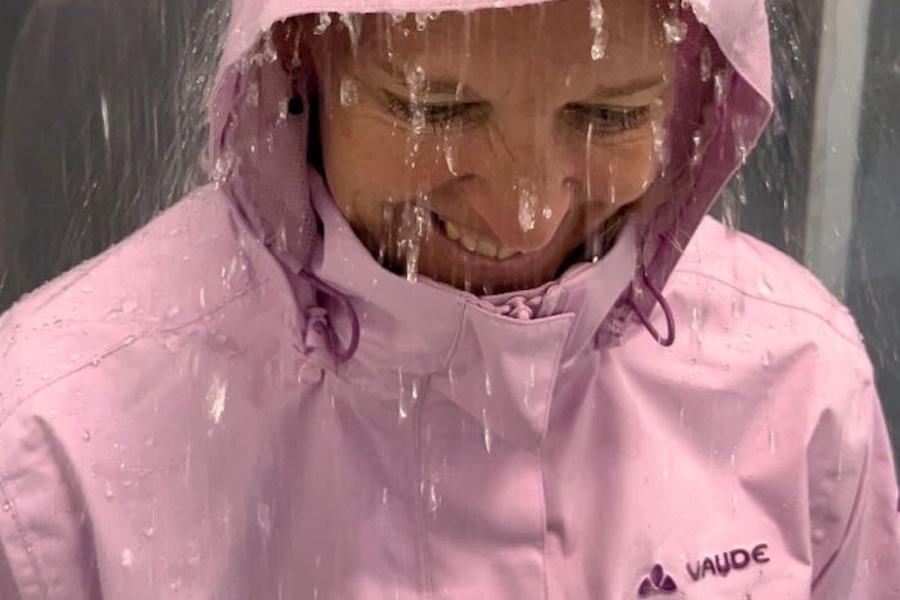#Sustainability
Bangladesh positioned to lead sustainable apparel manufacturing

This follows Cascale’s April publication of the “Vietnam Country Report: Macroeconomic, Socioeconomic, and Industry Analysis” report, developed with the support of Apparel Impact Institute (Aii). Similar in scope, Cascale’s new report emphasizes Bangladesh’s impressive strides toward sustainability, including ambitious environmental targets, the rise of green manufacturing, and a growing culture of industry collaboration.
“Scaling up the decarbonization of the energy supply will be crucial for Bangladesh to meet its 2030 climate ambitions.” –Jeremy Lardeau, SVP, Higg Index, Cascale.
“The workforce is both Bangladesh’s RMG sector’s greatest asset – providing the people power behind its competitive advantage – and its greatest responsibility to protect. By investing in organisational health and safety, fair labor practices, and skill development, Bangladesh aims to uphold and protect the wellbeing of the millions who form the backbone of this industrial activity.” –Carolina van Loenen, Director of Stakeholder Engagement, Cascale.
With a robust apparel sector that contributes over 80 percent of national exports and employs more than four million people – most of them women – Bangladesh stands behind China as the world’s second-largest garment exporter, commanding 7.4 percent of the global market share. With its strong economic growth and proactive sustainability initiatives, the country is positioned to leverage both domestic policies and international collaboration to advance its low-carbon transition amid evolving global market dynamics. In 2024, Bangladesh installed an interim government that issued a 2025 Renewable Energy Policy including tax incentives and measures designed to cut fuel imports, balancing continued economic growth with a shift toward cleaner energy. The interim government has set general elections for April 2026.
Key Highlights from the Bangladesh Country Report include:
Economic Strength & Global Relevance
With a GDP of USD 451 billion in 2024 and projected growth of 3.8 percent in 2025 (IMF), Bangladesh’s economic trajectory is powered by its textile and garment sector, now expanding into higher-value products and man-made fibers.
Decarbonization Commitments
The Bangladesh Garment Manufacturers and Exporters Association (BGMEA) has launched a Sustainability Vision 2030 to guide the industry, pledging:
30 percent GHG emissions reduction
50 percent sustainable material sourcing
20 percent energy from renewable sources
Zero discharge of hazardous chemicals
Exclusive Environmental Performance Insights from the Higg FEM
Nearly 1,300 factories in Bangladesh used Cascale’s Higg Facility Environmental Module (FEM) in 2023. Results show stronger performance than global averages, with opportunities to scale renewable energy use and reduce dependence on natural gas.
Leadership in Green Factories
Bangladesh boasts over 240 LEED-certified green garment factories – the most of any country in the world. Among these are 62 of the world’s top 100 highest-rated facilities, with over 500 more in the certification pipeline.
Collaborative Industry Transformation
In 2024, BGMEA signed a partnership MoU with Cascale to drive unified sustainability efforts across the supply chain and, in 2025, the International Apparel Federation (IAF) and International Textile Manufacturers’ Federation (ITMF) launched the Apparel and Textile Transformation Initiative (ATTI). The initiative is an innovative manufacturer-led, nationally oriented, globally coordinated program. It aims to advance environmental improvements across the supply chain by promoting manufacturer leadership on systemic challenges relating to energy use, water consumption, emissions and other key sustainability impacts, in collaboration with brands and industry initiatives. ATTI’s pilot countries are Bangladesh and Türkiye, and BGMEA and BKMEA lead the ATTI Bangladesh Chapter. Under the initiative, the associations will lead the development of an ATTI Bangladesh Transformation Plan with support from the ATTI Global Council.
Energy Landscape & Transition Efforts
With 57 percent of national energy from gas and only two percent from renewables, Bangladesh faces challenges for a green energy transition. However, there are also many opportunities: Factories are increasingly investing in solar PV systems, bioenergy, and energy-efficient technologies to future-proof operations.
A Critical Moment for the Industry
The report concludes that Bangladesh is at a turning point — leveraging past progress to chart a path toward a sustainable, inclusive, and competitive future. The country's alignment with global decarbonization goals, including its role in the UN Fashion Industry Charter for Climate Action, signals readiness to lead a new era of responsible manufacturing. Cascale urges brands, investors, and policymakers to support Bangladesh’s transition by aligning sourcing practices with sustainability goals, offering financial mechanisms for factory upgrades, and promoting inclusive growth across the value chain.













